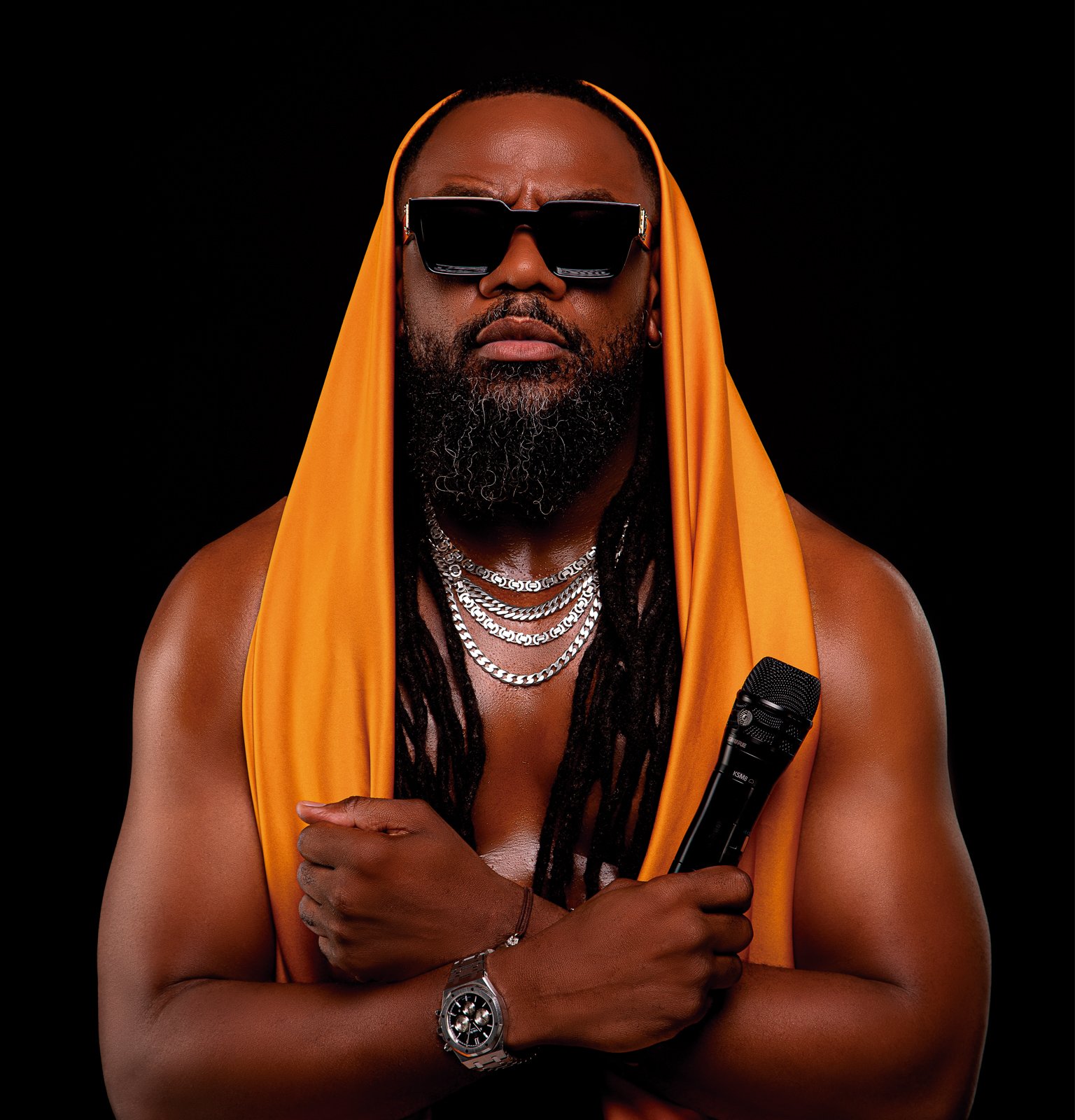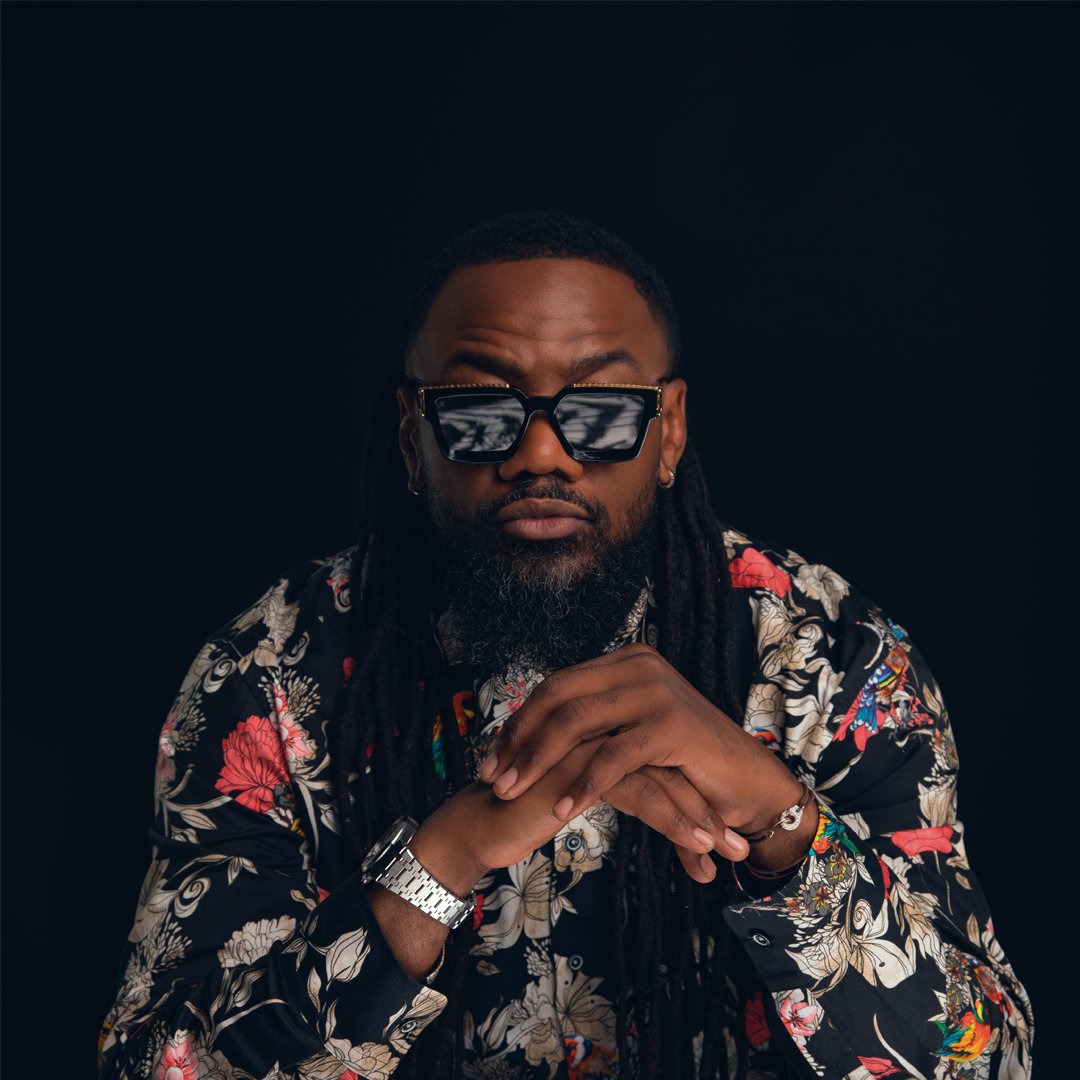
He sings about beginnings and endings, about what life insists on taking and keeping. To the beat of the batuque, he sculpts the Angola that made him a man and a citizen, in a heartfelt sound that, if it had a colour, would be burnt orange, like the country’s land and sunsets. The vibrations of C4 Pedro’s music are so hot that they spread around the world, with the authenticity needed to make their presence felt in coliseums and arenas. His artistic breakthrough came in Belgium, where he lived for several years and he is now a singer, songwriter, guitarist, producer and performer. Not forgetting his entrepreneurial side, which has led him to millions of YouTube views and multiple albums in his discography. Career management isn't always a bed of roses and sometimes there's an inner conflict between C4 Pedro the artist and Pedro Santos the person. Fame is rewarding, but it's not worth everything. Time to meet, Pedro Santos.
Do more people know C4 than Pedro Santos?
Without a doubt. One thing is who I am, another is who I appear to be. C4 is a figure that the public quickly recognises, but, you see, there isn't much time to convince others of who you are. Sometimes impressions take minutes or even seconds. If someone walks past me, they'll have a different perception than if they sit down with me to talk. They are two different moments, each with different perspectives. In other words, the public is what makes C4. Pedro is behind the camera, at home, with people who live with him every day. Very rarely do people criticise Pedro because they don’t know him, unlike C4, who is an artistic persona that I take on. Over the years, I try to choose new artistic personas based on what I'd like to present to the public.
The music industry is a competitive market. How have you managed your professional career since the beginning and what are the main challenges?
I try to focus on my work. Nevertheless, there are factors that I am unable to control, such as how an Anselmo Ralph or a Matias Damásio is working with music in today’s market. But, in actual fact, I concentrate on my own way of composing, fine-tuning the details with the years of experience I’ve gathered. I don’t follow trends; I think they can be very dangerous for an artist. Having a defined style and being authentic is fundamental. So, when I notice that the market is no longer listening to C4 Pedro, I don’t change the way I make music, but rather I move away from the market I’m in and explore another one. Sometimes the market is saturated and we have to give it time, being attentive and sensitive to our surroundings. At the moment I’m focused on Angola, in fact, even when I conquered the European market, it all came from Angola. My country is my greatest source of inspiration, not just for music, but also for my family.
«I'm focussed on Angola»
Do more people know C4 than Pedro Santos?
Without a doubt. One thing is who I am, another is who I appear to be. C4 is a figure that the public quickly recognises, but, you see, there isn't much time to convince others of who you are. Sometimes impressions take minutes or even seconds. If someone walks past me, they'll have a different perception than if they sit down with me to talk. They are two different moments, each with different perspectives. In other words, the public is what makes C4. Pedro is behind the camera, at home, with people who live with him every day. Very rarely do people criticise Pedro because they don’t know him, unlike C4, who is an artistic persona that I take on. Over the years, I try to choose new artistic personas based on what I'd like to present to the public.
The music industry is a competitive market. How have you managed your professional career since the beginning and what are the main challenges?
I try to focus on my work. Nevertheless, there are factors that I am unable to control, such as how an Anselmo Ralph or a Matias Damásio is working with music in today’s market. But, in actual fact, I concentrate on my own way of composing, fine-tuning the details with the years of experience I’ve gathered. I don’t follow trends; I think they can be very dangerous for an artist. Having a defined style and being authentic is fundamental. So, when I notice that the market is no longer listening to C4 Pedro, I don’t change the way I make music, but rather I move away from the market I’m in and explore another one. Sometimes the market is saturated and we have to give it time, being attentive and sensitive to our surroundings. At the moment I’m focused on Angola, in fact, even when I conquered the European market, it all came from Angola. My country is my greatest source of inspiration, not just for music, but also for my family.
«I'm focussed on Angola»





